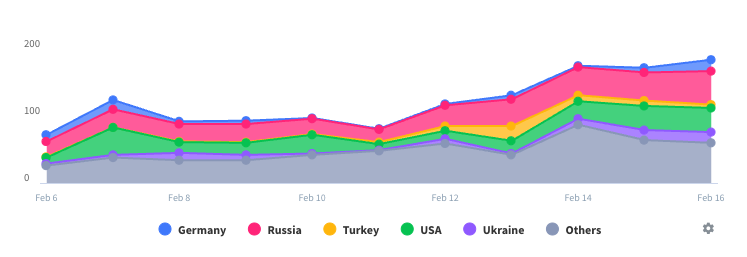Beschreibung
An ancient healing practice developed in China over 5,000 years, Qi Gong (chee-gong) is easy to learn, gentle and slow; anyone can do it. Awaken your senses, detoxify your body, and achieve a feeling of calm vitality and inner peace by following Cohen's simple standing exercises and graceful, flowing movements.
A sweat-free, stress-busting qigong routine to get your body moving over the lunch hour.
You know that feeling when you’ve been sitting at your desk for way too long? Your brain is half asleep, and your body is on the verge of revolting. You could pop out for a quick run, but that would involve sloshing back into the office in sweaty workout garb. So instead, you go fill your coffee mug for the umpteenth time and return to your office.
What if you could elicit the stress-busting, mind-clearing, energizing benefits of a run or tough workout without the sweat factor? Qigong (pronounced “chee-GUNG”) can help you do just that.
With Chinese roots dating back more than 4,000 years, qigong is a broad practice defined as the integration of physical postures, breathing techniques and focused intentions, according to the National Qigong Association. (Translated, “qi” is energy, breath or spirit. “Gong” means work.)
“Qigong helps you balance emotionally, physically and spiritually at the same time, so you have the energy you need to cope with every part of your life,” says Chunyi Lin, a practitioner based in Eden Prairie, Minn., and creator of Spring Forest Qigong, one form of the practice that incorporates gentle movements, meditation, breathing and sounds.
Abdominal or diaphragmatic breathing is fundamental to any qigong practice and is intended to enhance your ability to relax. (See Web Extra! for breathing instructions.) Many qigong exercises involve simply breathing and focusing one’s energy on different areas of the body.
Thousands of qigong variations exist, including external forms practiced to heal others, and internal forms that focus on cultivating self-balance. Among these are gentle, meditative practices and intensely physical ones, such as Chinese martial arts.
While Western scientific studies on qigong are limited, it has been linked to the following benefits:
Improved quality of movement, including balance, flexibility, core strength and joint mobility.
Better functioning of internal organs, such as improved cardiovascular, respiratory, circulatory, lymphatic and digestive functions.
Improved general health measures, including reduced stress, enhanced immunity, lower blood pressure and greater stamina.
“The greatest gift qigong can give is restoring energy,” says John Du Cane, a qigong teacher since 1995, who began his practice in the 1970s. Du Cane has produced several books and DVDs on qigong and regularly hosts instructor workshops and certification programs.
Du Cane suggests the following exercises to help restore your energy during the workday. They are suitable for anyone and require no equipment. He recommends practicing the sequence daily for optimal results.
Ausblenden
Mehr anzeigen...








